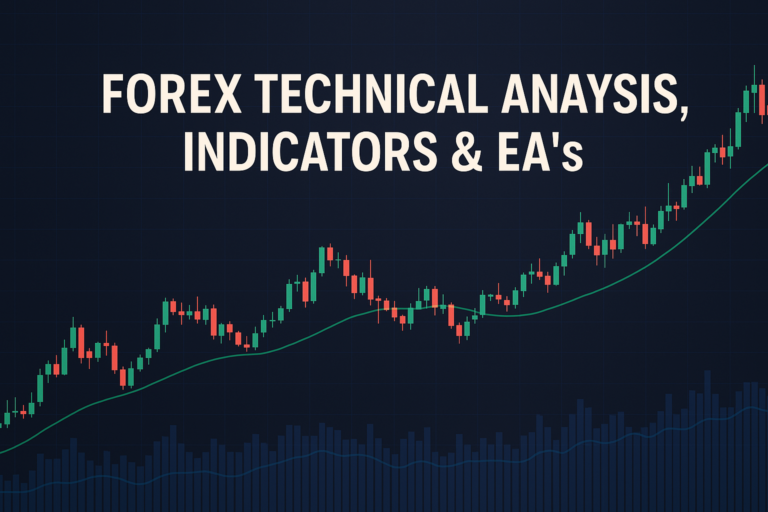
Market transactions are vital in Forex trading; understanding them leads to better strategies, informed decisions, and ultimately, greater success in the market.
Every day, millions of traders engage in market transactions in the Forex trading world. This involves buying and selling currency pairs, hoping to profit from fluctuations in exchange rates. Market transactions are crucial because they help determine the value of one currency against another. For anyone wanting to navigate the Forex landscape, grasping the concept of market transactions is vital.
Yet, many traders, both beginners and seasoned professionals, struggle with market transactions. They might find themselves overwhelmed by the complexity of the market or unsure about when to enter or exit trades. Understanding these transactions can be the key to unlocking success in Forex trading, leading to more informed decisions and ultimately, better profits.
One useful tool for traders is the accumulation distribution thinkorswim, which helps in analyzing market behavior and making smarter trading decisions.
Understanding the Market Transaction
Market transactions can be defined as the process of buying and selling currencies in the Forex market. This process is not always straightforward. Traders often face issues like slippage, where the price at which a trade executes differs from the expected price. This can happen during high volatility, such as when major news is released.
For instance, imagine a trader wants to buy the Euro against the US Dollar. They set a buy order at 1.2000. However, due to news about an unexpected economic downturn in Europe, by the time the order executes, the price jumps to 1.2050. This discrepancy is an example of a market transaction issue that can lead to unexpected losses.
Pro’s and Con’s for Market Transaction
Understanding the pros and cons of market transactions is essential for every trader. Here are some key points to consider:
- Pros: Market transactions allow traders to act quickly on market movements. This can lead to significant profits if done correctly.
- Cons: However, they can also lead to significant losses, especially if traders do not have a clear strategy or if they ignore market signals.
To mitigate problems associated with market transactions, traders can follow these step-by-step solutions:
- Set Clear Strategies: Define when to enter and exit trades based on market analysis.
- Use Stop-Loss Orders: This can help limit losses if a trade goes against you.
- Stay Informed: Keep track of economic news that could impact currency values.
For advanced traders, it’s crucial to remain vigilant about market conditions. Understanding liquidity and volatility can help avoid pitfalls during market transactions. A pro tip is to test strategies using a demo account before applying them in real trades.
Additionally, it’s essential to be aware of forex trading taxation, as it can impact your overall profitability.
Frequently Asked Questions
1. What is a market transaction in Forex?
A market transaction in Forex refers to the buying and selling of currency pairs. It reflects the current price of currencies in the market.
2. Why do market transactions fail?
They can fail due to slippage, lack of liquidity, or unexpected market movements. For instance, if a trader places an order during a major economic announcement, the price may change rapidly.
3. How can I improve my market transactions?
Improvement comes with education and practice. Using tools like charts and indicators can help traders make informed decisions.
4. Is it possible to predict market transactions?
While predictions are challenging, analyzing market trends and news can provide insights into potential movements.
5. What tools can help with market transactions?
Tools like trading platforms, analysis software, and economic calendars can enhance decision-making.
6. How do emotions affect market transactions?
Emotions can lead to impulsive decisions, resulting in losses. Staying disciplined is key to successful trading.
7. Can I automate my market transactions?
Yes, many traders use automated trading systems to execute strategies based on predefined criteria, reducing emotional influence.
Conclusion
In summary, understanding market transactions is essential for your Forex trading journey. By recognizing the potential pitfalls and implementing effective strategies, you can manage and even avoid these issues. Stay informed and continually refine your trading strategies.
User Engagement & Encouragement Always remember, every trader faces challenges. Stay curious, learn from your experiences, and keep improving your trading skills!
Recommended Next Steps
To navigate market transactions successfully, consider the following steps:
- Educate yourself on Forex trading fundamentals.
- Practice with demo accounts to build confidence.
- Utilize trading tools like charts and indicators.
- Stay updated with economic news and market trends.
- Connect with other traders to share experiences and strategies.
Looking to go beyond the basics? This resource offers deeper insights World Bank, OANDA
Expand Your Knowledge
- 📌 Forex Trading Learning Road Map
- 📌 Forex Trading Course with no Fees
- 📌 Forex Trading Issues, Problems, and Solutions
- 📌 Forex Daily Forecast & Live Updates
- 📌 Forex Fundamental & News Analysis: Tomorrow’s Market Movers & Trade Opportunities
- 📌 Forex Education Hub: Learn & Profit
- 📌 Forex Technical Analysis, Indicators & EA’s
Start Trading Today
Ready to take your forex trading to the next level? Open an account with Exness, one of the most trusted platforms in the industry. 👉 Sign Up Now and trade with confidence!
My recommended broker stands out with ultra-low spreads for beginners, instant withdrawals, and zero spread accounts for pro traders.
Trusted since 2008, lightning-fast execution, no hidden fees, and a secure, transparent trading environment—giving you the edge you need to succeed. 🚀
YouTube Video Library: Related Videos
Note: The video above is embedded from YouTube and is the property of its original creator. We do not own or take responsibility for the content or opinions expressed in the video.



